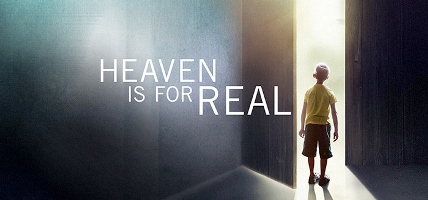- Joined
- Sep 30, 2008
- Messages
- 4,504
- Points
- 113
Is Heaven real?
Answer
Heaven is indeed a real place. The Bible tells us that heaven is God’s throne (Isaiah 66:1; Acts 7:48-49; Matthew 5:34-35). After Jesus’ resurrection and appearance on earth to His disciples, “He was taken up into heaven and sat at the right hand of God” (Mark 16:19; Acts 7:55-56). “Christ did not enter a man-made sanctuary that was only a copy of the true one; He entered heaven itself, now to appear for us in God’s presence” (Hebrews 9:24). Jesus not only went before us, entering on our behalf, but He is alive and has a present ministry in heaven, serving as our high priest in the true tabernacle made by God (Hebrews 6:19-20; 8:1-2).
We are also told by Jesus Himself that there are many rooms in God’s house and that He has gone before us to prepare a place for us. We have the assurance of His word that He will one day come back to earth and take us to where He is in heaven (John 14:1-4). Our belief in an eternal home in heaven is based on an explicit promise of Jesus. Heaven is most definitely a real place. Heaven truly does exist.
When people deny the existence of heaven, they deny not only the written Word of God, but they also deny the innermost longings of their own hearts. Paul addressed this issue in his letter to the Corinthians, encouraging them to cling to the hope of heaven so that they would not lose heart. Although we “groan and sigh” in our earthly state, we have the hope of heaven always before us and are eager to get there (2 Corinthians 5:1-4). Paul urged the Corinthians to look forward to their eternal home in heaven, a perspective that would enable them to endure hardships and disappointments in this life. “For our light and momentary troubles are achieving for us an eternal glory that far outweighs them all. So we fix our eyes not on what is seen, but on what is unseen. For what is seen is temporary, but what is unseen is eternal” (2 Corinthians 4:17-18).
Just as God has put in men’s hearts the knowledge that He exists (Romans 1:19-20), so are we “programmed” to desire heaven. It is the theme of countless books, songs, and works of art. Unfortunately, our sin has barred the way to heaven. Since heaven is the abode of a holy and perfect God, sin has no place there, nor can it be tolerated. Fortunately, God has provided for us the key to open the doors of heaven—Jesus Christ (John 14:6). All who believe in Him and seek forgiveness for sin will find the doors of heaven swung wide open for them. May the future glory of our eternal home motivate us all to serve God faithfully and wholeheartedly. “Since we have confidence to enter the Most Holy Place by the blood of Jesus by a new and living way opened for us through the curtain, that is his body, and since we have a great high priest over the house of God, let us draw near to God with a sincere heart full of assurance of faith, having our hearts sprinkled to cleanse us from a guilty conscience and having our bodies washed with pure water” (Hebrews 10:19-22).
For Further Study
Heaven and the Afterlife: The Truth About Tomorrow and What It Means for Today by Erwin LutzerMore insights from your Bible study - Get Started with Logos Bible Software for Free!







